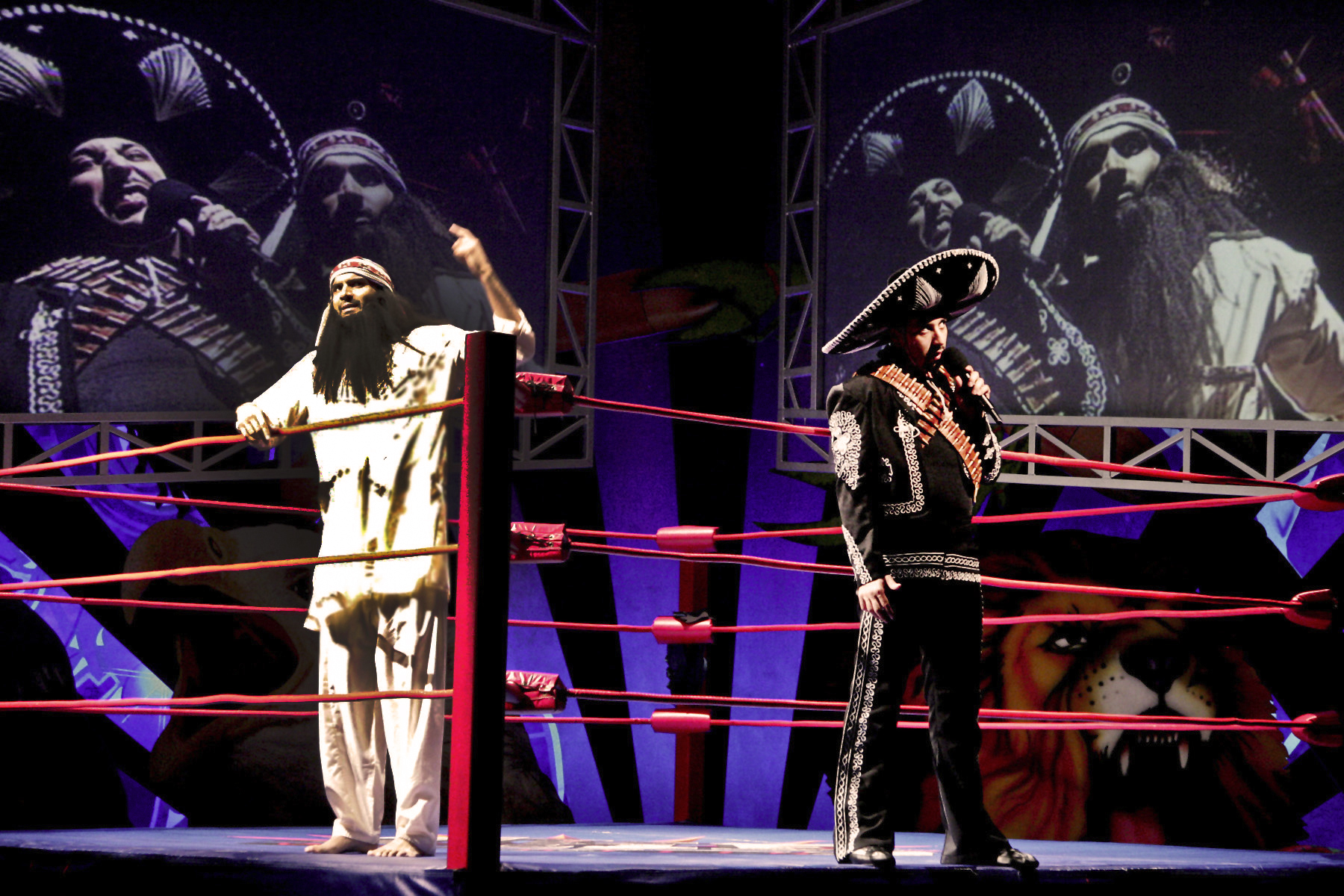A powerbomb of a play that effectively satirizes politics, power and race in the United States is in its West Coast debut in Westwood. What is most unexpected about this dramatic heavyweight, which was selected as a finalist for the 2010 Pulitzer Prize in Drama, is that it takes professional wrestling as its subject. Ladies and gentlemen: “The Elaborate Entrance of Chad Deity.”
Kristoffer Diaz’s high-energy, smartly written play, currently running at the Geffen Playhouse, is worth every accolade granted to it. Heaping praise upon praise, however, does little good in getting at just how funny, exhilarating and refreshingly unorthodox the production is. In short, “The Elaborate Entrance of Chad Deity” is a must-see.
From the opening bell when actor Desmin Borges steps into the spotlight in a black and white singlet, he becomes the fast-talking Macedonio Guerra, Puerto Rican wrestler extraordinaire from the Bronx. Borges’ opening monologue sets the play’s speed and vigor as he describes his career as Mace in a fictional wrestling league called THE Wrestling. Although his mile-a-minute intensity is enervating at first, by the time he explains that wrestling is the only sport where the winner can’t win without the help of the loser, his role as narrator and unappreciated expert grows on the audience.
Borges guides the audience through Diaz’s loud and heavy-hitting script, telling the story of how he got his brothers’ friend, Vigneshwar Paduar (VP for short), into the world of THE Wrestling. VP is played by Usman Ally, who brings the smooth-talking, street smart Indian to life on stage.
“Chad Deity” quickly moves into the world of satire as THE Wrestling’s owner, EKO, accepts Mace’s proposal to hire VP, but only if they accept new personas as a Mexican revolutionary and an Islamic extremist. Mace and VP can participate in the system, but they cannot define their own identities.
The first act introduces the play’s main characters, including Chad Deity and his appropriately titled entrance, and sets up the smackdown of a second act, when the wrestlers actually spar in the on-stage ring. Director Edward Torres should be lauded for using video, breaking the fourth wall and combining the formality of the theater with the theatrics of wrestling.
The in-your-face ringside action of the second act is a refreshing alternative to more traditional storytelling. However, this same quality sometimes makes the satire too loud and obvious to truly be appreciated, though Terrence Archie’s monologue on American superiority and raisin bread as a symbol of national pride demonstrates how the actor’s Chad Deity is both blindly arrogant and delicately nuanced. Overall, this no-holds-barred approach works well and poses the question: Why shouldn’t issues of race and power be tackled head-on?
